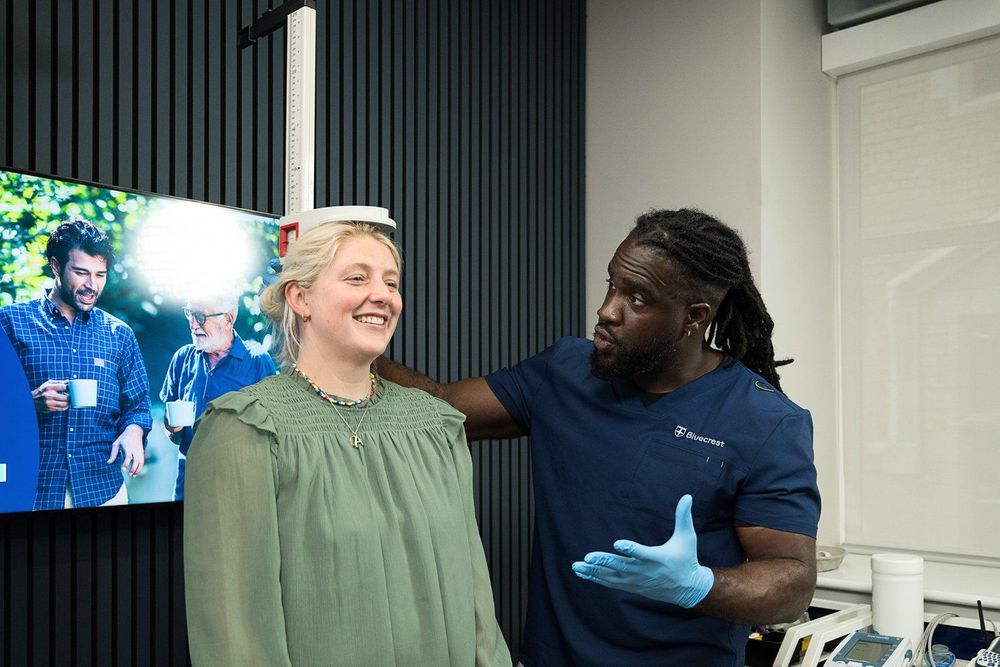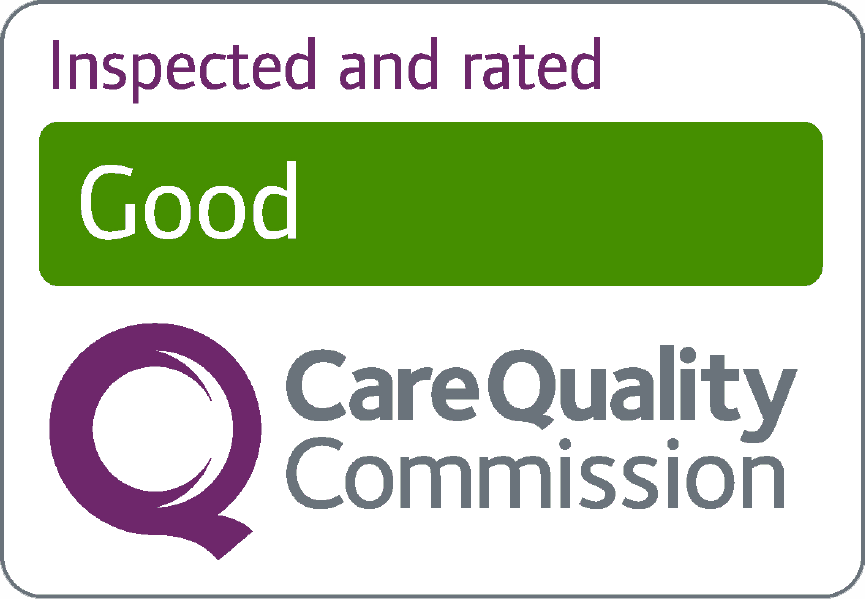
Symptoms of hormonal imbalance
Hormones play a central role in how your body works - from regulating mood, energy and sleep, to managing appetite, metabolism and reproductive function. But when hormone levels fall out of balance, the effects can be wide-ranging and hard to pinpoint.
Some symptoms are subtle, while others can have a noticeable impact on your day-to-day wellbeing. Understanding the signs of hormonal imbalance and what could be causing them is a key step in taking control of your health.
What is hormonal imbalance?
Hormones are chemical messengers that travel through the bloodstream to your organs and tissues, controlling many of the body’s processes. Produced by glands in the endocrine system, including the thyroid, adrenals, ovaries and testes, these hormones work together in a delicate balance.
A hormonal imbalance occurs when you have too much or too little of one or more hormones. Because they affect nearly every function in the body, even small changes can lead to noticeable symptoms.
Hormonal fluctuations are completely normal during key life stages, such as puberty, pregnancy, perimenopause or andropause, but persistent or unexplained changes could point to an underlying imbalance.
What are the common symptoms of hormonal imbalance?
Hormonal imbalance doesn’t always present the same way for everyone. It depends on which hormones are affected and whether levels are too high or too low.
Here are some of the most common signs to look out for:
Persistent tiredness or low energy: If you're feeling drained no matter how much sleep you get, it could be linked to low thyroid hormones (hypothyroidism), cortisol dysregulation or insulin resistance, all of which affect energy metabolism.
Weight changes: Unexpected weight gain or difficulty losing weight, especially around the midsection, can be influenced by insulin, thyroid function or high cortisol levels due to chronic stress.
Mood swings, anxiety or low mood: Hormones like oestrogen, progesterone, testosterone and cortisol affect neurotransmitters like serotonin and dopamine. Fluctuations can lead to irritability, anxiety or feelings of depression.
Irregular periods or fertility issues: In women, imbalances in oestrogen, progesterone or luteinising hormone can disrupt the menstrual cycle and ovulation, making periods irregular, painful or absent altogether.
Poor sleep: Difficulty falling or staying asleep may be linked to changes in melatonin, progesterone or cortisol, particularly if stress or hormone transitions (like menopause) are involved.
Low libido or sexual dysfunction: Reduced interest in sex or problems with arousal may relate to imbalances in oestrogen, progesterone or testosterone in women and low testosterone in men.
Brain fog or memory issues: Difficulty concentrating, forgetfulness and mental fatigue are common complaints when hormones are out of sync, especially during perimenopause, menopause or thyroid dysfunction.
Skin changes or adult acne: Oily skin, breakouts and persistent acne along the jawline or chin area can suggest an excess of androgens, such as testosterone, or shifts in oestrogen and progesterone.
Hair thinning or loss: Hormonal hair loss in women may be due to thyroid imbalances, menopause or elevated androgens. In men, low testosterone or DHT sensitivity often plays a role.
Hot flushes and night sweats: While typically associated with menopause, hot flushes can also result from thyroid dysfunction or adrenal issues, affecting both men and women.
What causes hormonal imbalance?
Hormonal imbalance can stem from a number of factors, ranging from natural life changes to underlying medical conditions or lifestyle influences.
Some common causes include:
-
Chronic stress – Raises cortisol levels and can disrupt the balance of other hormones over time.
-
Poor diet or nutrient deficiencies – Lacking essential nutrients like iodine, selenium or vitamin D can affect thyroid and reproductive hormone production.
-
Thyroid disorders – An underactive or overactive thyroid can cause widespread symptoms due to its role in metabolism and energy regulation.
-
Polycystic Ovary Syndrome (PCOS) – A common hormonal condition in women that affects ovulation, insulin sensitivity and androgen levels.
-
Diabetes or insulin resistance – Can lead to imbalances in insulin, which affects energy storage, appetite and weight.
-
Age-related changes – Hormone levels naturally decline with age, leading to perimenopause, menopause or andropause.
-
Medical treatments or medications – Certain drugs, such as corticosteroids, contraceptives or chemotherapy, can disrupt hormonal balance.
In many cases, symptoms overlap or appear gradually, making it difficult to know what’s driving the changes. That’s where a hormone blood test can help provide clarity.
Are symptoms different in men and women?
Yes, while both sexes share many symptoms of hormonal imbalance, some are more gender-specific due to differences in sex hormones.
In women:
- Irregular or missed periods
- PMS (Premenstrual Syndrome) and PMDD (Premenstrual Dysphoric Disorder) symptoms
- Hot flushes or night sweats
- Vaginal dryness or discomfort
- Difficulty conceiving
- Mood changes linked to the menstrual cycle
In men:
- Reduced muscle mass or strength
- Erectile dysfunction
- Increased body fat, especially around the abdomen
- Low motivation or mood changes
- Loss of facial or body hair
- Decreased libido
In both cases, changes may be gradual and easy to dismiss as lifestyle-related. If symptoms persist or interfere with daily life, it's worth checking hormone levels to rule out underlying issues.
How do lifestyle factors influence hormones?
Lifestyle choices can significantly impact hormone production, metabolism and balance. Some of the most influential factors include:
Diet: Highly processed or sugar-rich diets can disrupt insulin, leptin and cortisol levels. A lack of healthy fats, fibre or protein can also affect hormone regulation. Nutrient-rich foods support the glands that produce key hormones.
Sleep: Poor or irregular sleep disrupts the natural release of hormones such as melatonin and cortisol, and can reduce insulin sensitivity, potentially affecting metabolism and mood.
Stress: Chronic stress raises cortisol, which can suppress reproductive hormones and thyroid function over time. High stress is also linked to increased inflammation, further disrupting hormonal pathways.
Exercise: Moderate, regular activity helps regulate insulin and boosts mood-enhancing endorphins. But excessively high-intensity exercise, especially without enough fuel, can reduce oestrogen, testosterone or cortisol in the long term.
Smoking and alcohol: Both can interfere with hormone production and metabolism. Smoking, in particular, has been linked to early menopause in women and reduced testosterone in men.
Can hormonal imbalance be managed?
In many cases, yes. The right course of action depends on the type and cause of the imbalance. Options may include:
- Lifestyle changes (diet, exercise, stress management)
- Hormone replacement therapy (HRT), especially for menopause of low testosterone
- Medication to regulate thyroid function, insulin or cortisol
- Natural supplements to support hormonal health (under medical guidance)
The first step is understanding your current hormone levels through a comprehensive blood test.
Monitoring your hormone levels for better understanding
If you’re experiencing symptoms that could be linked to hormonal imbalance and want clearer answers, booking a private hormone blood test with Bluecrest Wellness can provide valuable insights and peace of mind.
Our comprehensive hormone testing package measures key hormones such as oestrogen, progesterone, testosterone, thyroid hormones and cortisol. Along with your results, you'll receive a private GP consultation to discuss your symptoms and explore what your hormone levels mean for your health.
This testing can help identify the root cause of your symptoms, guiding you and your healthcare provider in choosing the right treatment or lifestyle plan to restore balance.
We offer convenient appointments across the UK, allowing you to book your hormone blood test at a time and location that suits you. Bluecrest works with leading accredited laboratories to ensure fast, reliable, and accurate results, so you can take confident steps towards better health.





























